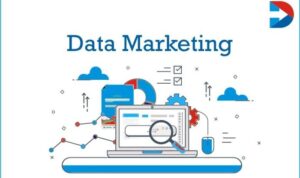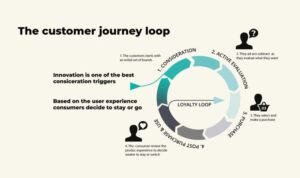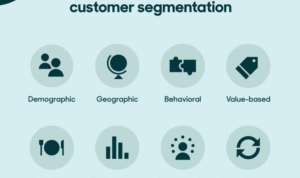Using Customer Data in Marketing takes center stage, inviting readers into a realm filled with insights and creativity, ensuring a captivating and uniquely original experience.
Exploring the pivotal role of customer data in shaping marketing strategies, understanding customer behavior, and driving successful campaigns sets the stage for a compelling journey ahead.
Importance of Customer Data in Marketing

Customer data is like gold in the world of marketing – it’s valuable, precious, and can make all the difference in shaping successful marketing strategies. By analyzing customer data, businesses can gain valuable insights into their target audience, allowing them to tailor their marketing efforts to be more effective and engaging.
Role of Customer Data in Shaping Marketing Strategies
Customer data plays a crucial role in shaping marketing strategies by providing businesses with key information about their customers’ preferences, behaviors, and demographics. This data helps businesses understand what motivates their customers to make purchasing decisions, allowing them to create targeted marketing campaigns that resonate with their audience.
- Customer data allows businesses to segment their audience based on various criteria, such as age, gender, location, or purchasing history, enabling them to create personalized marketing messages that speak directly to different customer segments.
- By analyzing customer data, businesses can track customer behavior patterns, such as browsing history, purchase frequency, and interactions with marketing campaigns, helping them identify trends and adjust their strategies accordingly.
- Customer data also enables businesses to measure the effectiveness of their marketing efforts by tracking key performance indicators (KPIs) like conversion rates, click-through rates, and customer lifetime value, allowing them to optimize their campaigns for better results.
Understanding Customer Behavior with Customer Data
Customer data is a powerful tool for understanding customer behavior, as it provides businesses with valuable insights into how their customers interact with their products or services. By analyzing customer data, businesses can gain a deeper understanding of what drives customer decisions, preferences, and motivations, helping them anticipate customer needs and tailor their marketing strategies accordingly.
- For example, e-commerce giant Amazon uses customer data to analyze purchase history and browsing behavior to recommend personalized product suggestions to customers, increasing sales and customer satisfaction.
- Retailers like Target use customer data to send targeted promotions and discounts to customers based on their purchase history and preferences, driving repeat purchases and loyalty.
- B2B companies like Salesforce use customer data to track customer interactions with their website and marketing materials, allowing them to identify potential leads and nurture them through the sales funnel more effectively.
Types of Customer Data Used in Marketing
Customer data in marketing comes in various forms, each serving a specific purpose in understanding and targeting consumers effectively.
Demographic Data
Demographic data includes information such as age, gender, income, education, and location. This type of data is crucial in targeted marketing as it helps businesses segment their audience based on specific characteristics. By analyzing demographic data, companies can tailor their marketing strategies to resonate with different consumer groups, ensuring that their messages are relevant and appealing.
Behavioral Data
Behavioral data focuses on the actions and behaviors of customers, such as purchase history, website visits, and social media engagement. This type of data is essential in personalized marketing strategies as it allows businesses to understand individual preferences and interests. By analyzing behavioral data, companies can create targeted campaigns that cater to the unique needs of each customer, increasing the likelihood of conversion and customer loyalty.
Ethical Considerations in Using Customer Data

When it comes to leveraging customer data for marketing purposes, it is crucial to consider the importance of data privacy. Customers trust businesses with their personal information, and it is the responsibility of companies to protect this data.
Data Privacy and Security
Ensuring data privacy is not only a legal requirement but also a matter of trust between the company and the customer. Any breach of data can lead to severe consequences, including loss of customer trust, legal repercussions, and damage to the company’s reputation.
- Implement robust data security measures to protect customer information.
- Comply with data protection regulations such as GDPR to safeguard customer data.
- Obtain explicit consent from customers before using their data for marketing purposes.
Ethical Implications
Using customer data for marketing raises ethical concerns regarding the boundaries of privacy invasion and manipulation. Companies must ensure that they are transparent about how they use customer data and uphold ethical standards in their marketing practices.
- Avoid using customer data for purposes other than what was agreed upon.
- Respect customer preferences regarding data usage and marketing communication.
- Avoid targeting vulnerable or sensitive customer groups with personalized marketing campaigns.
Best Practices
Maintaining data security and respecting customer privacy should be top priorities for any business utilizing customer data in marketing strategies. By following best practices, companies can build trust with customers and ensure ethical use of their data.
- Regularly update security protocols and conduct data privacy audits.
- Educate employees on the importance of data privacy and ethical data usage.
- Provide customers with clear opt-in and opt-out options for data usage.
Benefits of Utilizing Customer Data in Marketing
Utilizing customer data in marketing can provide a wide range of benefits for businesses looking to enhance their strategies and connect with their target audience in a more personalized way. Here are some key advantages of using customer data:
Improved Customer Engagement, Using Customer Data in Marketing
Customer data allows businesses to gain valuable insights into the preferences, behaviors, and needs of their customers. By analyzing this data, companies can create targeted marketing campaigns that resonate with their audience on a deeper level. This personalized approach can lead to increased customer engagement as individuals feel understood and valued by the brand.
Increased Conversion Rates
Personalized marketing based on customer data can significantly impact conversion rates. When businesses tailor their messaging and offers to align with the interests and preferences of their customers, they are more likely to capture their attention and drive them towards making a purchase. By delivering relevant content at the right time, businesses can enhance the overall customer experience and boost conversion rates.
Enhanced Customer Retention and Loyalty
Data-driven marketing strategies can also play a crucial role in customer retention and loyalty. By leveraging customer data to anticipate their needs and provide personalized experiences, businesses can strengthen their relationships with existing customers. This, in turn, can lead to increased customer loyalty, repeat purchases, and positive word-of-mouth referrals. Ultimately, utilizing customer data in marketing can help businesses build long-lasting connections with their audience and drive sustainable growth.
Tools and Technologies for Analyzing Customer Data: Using Customer Data In Marketing
In today’s digital age, businesses have access to a plethora of tools and technologies to analyze customer data efficiently. These tools play a crucial role in helping companies understand their target audience better and make informed marketing decisions.
Customer Data Management Platforms (CDMP)
Customer Data Management Platforms (CDMP) are robust tools that allow businesses to collect, store, and analyze customer data from various sources in one centralized platform. These platforms enable marketers to create detailed customer profiles, track customer interactions across multiple channels, and personalize marketing campaigns effectively.
Customer Relationship Management (CRM) Systems
CRM systems are widely used by businesses to manage their interactions with current and potential customers. These systems help organizations track customer activities, preferences, purchase history, and feedback. By integrating customer data from CRM systems, marketers can gain valuable insights into customer behavior and tailor their marketing strategies accordingly.
Data Analytics Tools
Data analytics tools such as Google Analytics, Adobe Analytics, and Tableau are essential for analyzing and visualizing customer data. These tools provide businesses with in-depth insights into customer demographics, behavior patterns, and preferences. Marketers can use this information to optimize their marketing campaigns, improve customer engagement, and drive conversions.
Artificial Intelligence (AI) and Machine Learning
AI and machine learning technologies have revolutionized the way businesses analyze customer data. By leveraging AI algorithms, companies can predict customer behavior, segment their target audience more effectively, and deliver personalized experiences at scale. Machine learning models can analyze vast amounts of customer data in real-time, enabling marketers to make data-driven decisions quickly.
Social Media Monitoring Tools
Social media monitoring tools like Hootsuite, Sprout Social, and Brandwatch help businesses track and analyze customer conversations on social media platforms. These tools provide valuable insights into customer sentiment, brand mentions, and trending topics, allowing marketers to engage with customers in real-time and adapt their marketing strategies accordingly.





